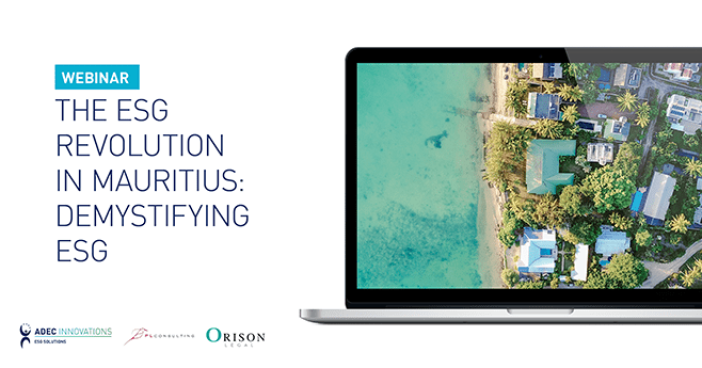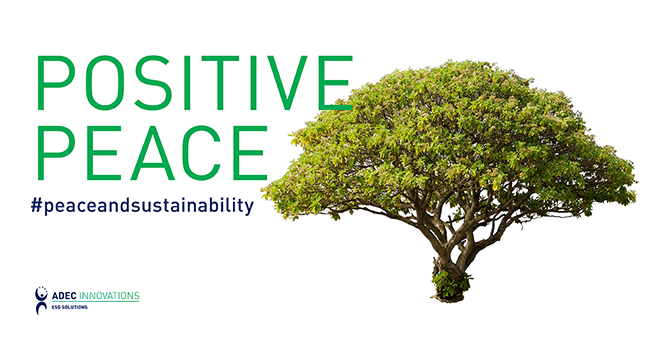In a recent webinar, we teamed up with Pascale Leonide (PL Consulting) and Tania Li (Orison Legal) for a discussion on global ESG trends and how ESG factors influence both private companies and the public legislative sphere in Mauritius and its wider region. Keep reading for a summary of main discussion points, or watch the full webinar for all the details here.
Due to increased pressure, accountability on ESG is growing on a global scale.
Sustainability and ESG are hot topics among business leaders and communities worldwide. This is due, in part, to the impacts of climate change that we see on a day-to-day basis, and also to a shift towards long-term thinking: sustainable and successful businesses are proactive, resilient, and powered by data.
Investors and stakeholders want to know how organizations are implementing ESG initiatives and factoring ESG into the decision-making process. Initiatives like improved ESG data management, risk management, materiality, and climate scenario analysis all help you to understand how ESG factors impact your business—and help to build confidence and resilience for key stakeholders.
Investors such as Blackrock and Wells Fargo are pushing for increased reporting on ESG performance and management, as ESG risks are understood to be very real risks to businesses and investments. These include the financial and strategic impact of climate risks such as extreme weather conditions and water scarcity, as well as social and governance factors such as community impacts, supply chain engagement, and executive compensation.
Customers are also pushing for greater ESG integration due to investor requests, risk mitigation, and compliance. If an apparel brand, for example, takes action to comply with new environmental regulations or standards, it will also push for its supply chain to follow suit. Because many of these brands have vast, far-reaching supply chains, their ESG initiatives reach just as far and wide.
Get all the details on specific case studies and examples by watching the full webinar here.
Mauritius is well-positioned to take leadership on ESG issues and values.
Mauritius has seen an increasing call for solidarity and unity across environmental, social, and governance issues in recent years. These have been triggered in large part by clear visual indications of a need for greater protection and greater action, such as the devastation caused by the July 2020 MV Wakashio oil spill. Our friends at PL Consulting have also been pushing for stronger conservation efforts and policy changes within Mauritius, in an effort to support real regulatory change.
Pascale Leonide of PL Consulting works extensively with local Mauritius NGOs and private sector companies, who acknowledge a need for integrating sustainability into company culture and decision-making. Driven by the UN’s Sustainable Development Goals, many Mauritian companies are taking a proactive approach to ESG initiatives, including energy- and community-focused programs, and have embraced greater transparency through reporting.
Mauritius already has ESG-related legal frameworks in place.
Mauritius’ legislative framework has for years set the stage for better private-sector policies surrounding ESG topics. Government support for improved corporate governance also demonstrates how the public sector is willing to drive real, tangible change.
For example, in April 2021, the government passed the Climate Change Act of 2020, with the goal of developing Mauritius into a more sustainable economy under the UNFCCC, Kyoto Protocol, and other frameworks. The Act calls for the creation of a Department of Climate Change, tasked with the development of a national climate change adaptation strategy and action plan. The Act also empowers the Minister of Environment to pause certain regulations such as those surrounding GHG emissions, in order to better direct Mauritius towards its international climate change obligations.
The 2016 National Code of Corporate Governance, while voluntary, also offers some legislative ESG guidance for the private sector, Tania Li of Orison Legal explains. The Code calls for public reporting on ESG performance in annual reports and on company websites, encourages non-discrimination and healthy-and-safety policies in the workplace, and sets stricter standards on governance structure and procedures.
Taking the next step together.
With communities, legislation, and much of the private sector already prioritizing ESG issues in Mauritius, the need to be proactive and push for greater sustainability is mounting. To help you get started on your Sustainability Journey—and fill you in on the latest in ESG in Africa—we’re teaming up with PL Consulting and Orison Legal for another webinar, coming soon.
Join us on November 9 for part two of our webinar series, “Let’s Kick Off Your ESG Journey.” We’ll run through steps you can take to get started on your ESG roadmap, cover ESG trends and emerging regulation in Africa, and highlight key examples of regional companies adopting ESG initiatives. How did these companies succeed, and what did they learn along the way?
Click here to save your spot and get a chance to ask our panel your ESG questions.
Want more than just the highlights? We take a deeper dive into each topic on the full webinar. Watch the recording, including a Q&A session with the audience, by clicking here.




